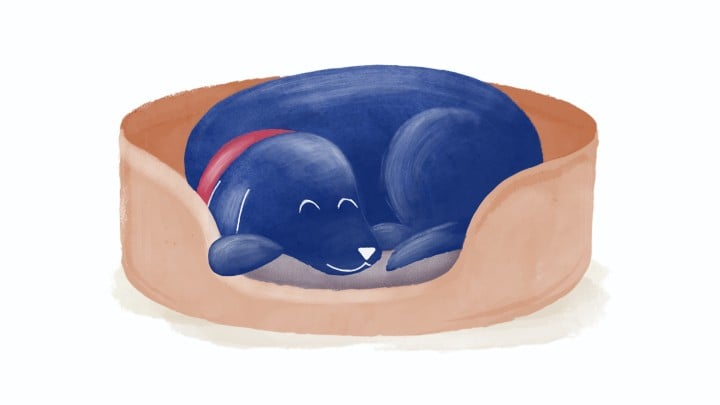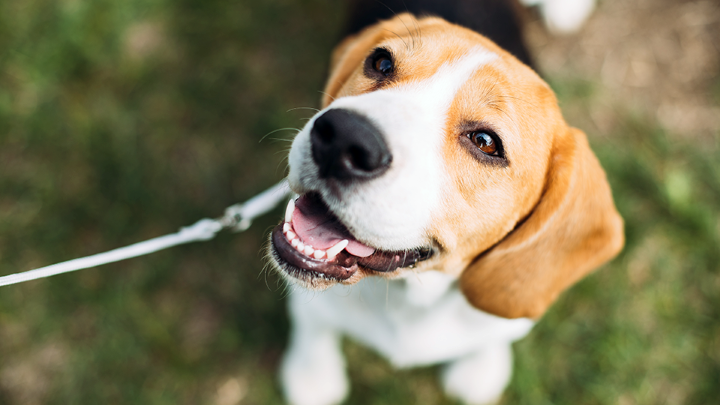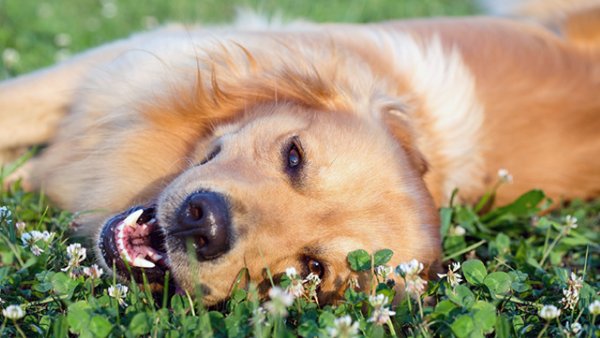Dog Dental Care
Taking Care Of Your Dog's Teeth
We all know how important good oral hygiene is for us and that’s exactly the same for our dogs too. The trouble is they can’t brush their own teeth or tell us when they’re in pain so it’s up to us to do it for them. Keeping your dog’s teeth clean and healthy doesn’t just mean their breath smells nicer when they give you an affectionate lick, it’s good for their overall wellbeing too so it’s important to get into good habits early on. Whether you’ve bought a puppy or your own an older dog with teeth that need attention, Medivet can set you on the path to great dog dental care.
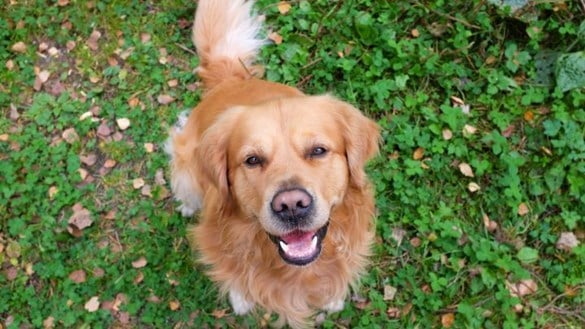
The importance of caring for your dog’s teeth
Just as we can, dogs may suffer from cavities, plaque build-up and periodontal disease. If you’ve ever experienced the pain of a toothache, you’ll know just how miserable it can be. It’s no different for your canine friend but they can’t tell you where it hurts.
Regular brushing and routine dental care can help stop problems before they begin or at least help you spot them before they become more serious.
If dental disease goes untreated it can lead to more serious health issues which will cause pain and discomfort for your canine friend.
Understanding dental disease in dogs
Dental problems in dogs are extremely common and if left untreated can lead to periodontal disease, a progressive illness which causes inflammation and infection in the teeth and gums, and eventually tooth loss. Here are some of the dental conditions your dog might suffer from:
- Tooth fractures – Dogs can break teeth chewing on hard objects like bones or toys. A fractured tooth means the sensitive pulp inside is exposed, leaving them vulnerable to pain and infection
- Plaque and tartar build-up – Plaque is a sticky, bacteria-laden substance which builds up over time on teeth if they’re not regularly brushed. This can harden into tartar which can lead to gum inflammation, bad breath and eventually more serious periodontal disease
- Gingivitis – Gingivitis or inflamed gums is the early stage of periodontal disease. Dogs with gingivitis may have red, swollen or inflamed gums
- Retained baby teeth – Retained baby teeth can crowd the mouth and make dental care difficult. They can increase the risk of plaque build-up, infection and misalignment of adult teeth
- Oral tumours – Dogs can develop benign mouth tumours which present as lumps, causing bleeding or difficulty eating. They require a vet’s diagnosis
- Halitosis (bad breath) – Bad breath is caused by a bacterial build-up or infected gums. It’s often the first sign of oral problems though chronic bad breath can be a sign of more serious issues
- Tooth root abscesses – If bacteria reach the root of the tooth they can cause painful tooth abscesses which may require draining, antibiotics or even the removal of the tooth
Dental problems can emerge suddenly or appear gradually over time so it’s vital you take your dog for regular check-ups to get them treatment quickly.
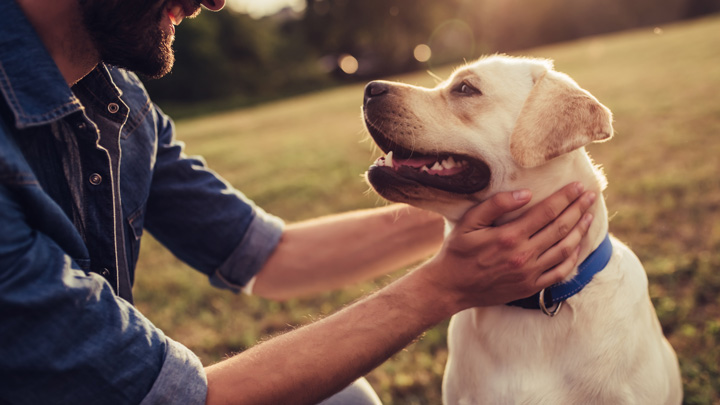
Keeping your dog’s teeth healthy
Good oral hygiene starts with regular brushing and if you get them used to it early on it will soon become part of their daily routine.
Regular toothbrushing
Daily brushing can significantly reduce the risk of canine dental problems so it’s important you get into the habit as soon as you welcome your new dog into your family. If you make it fun and stress-free, your pet will soon accept it as part of their normal routine. Make sure to use dog-friendly toothpastes which taste of things like chicken or beef and introduce them gradually to the process.
Dental checks
Take your dog to get their teeth checked over annually. Certain factors such as their health, lifestyle, age and breed may mean they need to be seen more regularly and your vet will talk to you about the best course of treatment.
The right diet
A high-quality diet supports your dog’s overall health as well as their dental health so it’s to think about what foods you’re giving your pet. While not a substitute for brushing, dry pet food can help reduce the risk of plaque and tartar build-up because it has a mild scraping effect on the teeth. Specially formulated dry food is designed to promote chewing and remove plaque. It may also contain ingredients that help fight bacteria and slow plaque formation.
Remember not to give your dog too many sugary or high-carb treats. As in humans, sugary foods encourage bacterial growth. Instead, opt for natural chews and abrasives – raw vegetables like carrots or apple slices (in moderation) which require chewing and help to clean the teeth naturally. Just be cautious with portion slices and avoid high-sugar fruits.
Maintaining a healthy gum line
Keeping your dog’s gums healthy will positively impact their teeth so when you brush, make sure you focus on this area. Brush consistently, provide dental chew treats, plenty of fresh water and offer a nutritionally balanced diet. If your dog’s gums are healthy there’s much less chance of tooth decay down the line.
Beyond brushing
Brushing should be the first line of defence in dog oral care but there are other things you can implement too. Chews are a great way to help them naturally clean their teeth, and they can be fun for them too.
Chew toys help massage the gums, promote circulation and can dislodge food particles and plaque along the gum line. Vet-approved dental treats can also help reduce plaque and tartar.
Your vet can recommend the best diet for your dog as well as specific chew toys and treats which can promote good dental care.
Dental procedures for dogs
Beyond regular, daily brushing your vet is the best person to help maintain your dog’s smile. Regular check-ups will allow them to spot problems early on and give your dog prompt treatment.
Regular check-ups
Your vet will gently examine your dog’s mouth for signs of plaque or tartar build-up. They’ll look for areas of swelling or bleeding, broken or loose teeth and signs of oral discomfort. They may use a dental probe to measure any pockets between the teeth and gums and they will order x-rays if necessary.
Scaling
Scaling is a straightforward process to clean your dog’s teeth and stop more serious dental disease occurring. Carried out under anaesthetic your vet will use an ultrasonic scaler to thoroughly clean their teeth before moving onto hand scaling. Once they’re done, they’ll apply a polish to iron out any microscopic scratches which could help bacteria adhere to the surface in future. Some vets may apply a fluoride paste to help protect the teeth.
Tooth extractions
Despite yours and your vet’s best efforts, sometimes extractions are necessary because a tooth is severely decayed or damaged and beyond repair. As with scaling, your pet will be under general anaesthetic to prevent pain and stop movement. You vet will use special tools to remove the tooth and they may make a small incision in the gum if the tooth is not easily accessible.
Your dog will be given pain relief. Recovery typically takes a few days and they’ll need to avoid eating hard foods or treats until they’re fully healed.
Find your local practice
Do puppies need dental care?
Absolutely! Establishing a good routine early on gets them used to brushing and prevents dental problems as they get older.
Reward your puppy after each brushing with treats, toys or affection to create a positive association with dental care and provide dental-friendly chews – not only can this help with dental health it can alleviate pain and discomfort when they’re teething.
Creating the right dental routine for your dog
A solid daily brushing routine is very beneficial for your dog’s health. Here’s how to get started:
- Introduce brushing gradually and get your dog used to the idea by letting them sniff and taste the toothpaste. Always use dog-friendly toothpaste – human toothpaste is toxic to dogs
- Touch their gums often so they don’t mind having them manipulated. You can even try brushing with your finger or a soft cloth initially
- Once they’re used to your finger, switch to a dog toothbrush or finger brush as these are designed for canine mouths and make brushing easier
- Start with short, gentle sessions focussing on the gum line where plaque is most likely to build up
- Most importantly, stay consistent. Try and brush your dog’s teeth daily but if that’s not possible even a few times a week can make a difference
- Take your dog to your vet for regular check-ups and don’t hesitate to book an appointment if you think they’re suffering from an oral problem
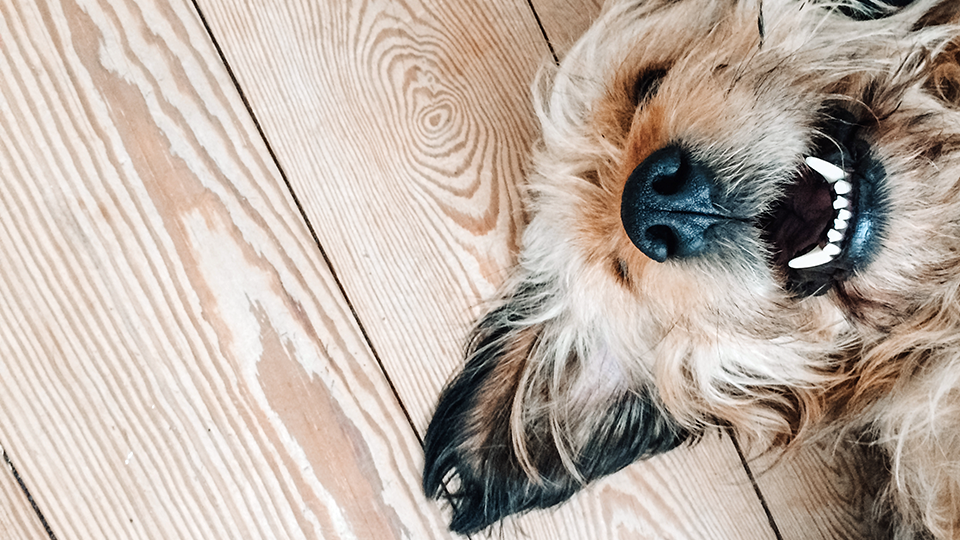
FAQs
What’s the best way to clean a dog’s teeth?
The best way to clean your pet’s teeth is with a dog-specific toothbrush and toothpaste. Aim for daily brushing. Pair this with dental chews, toys and regular check-ups for a thorough dental care routine.
Is it too late to brush a dog’s teeth?
It’s never too late to start good oral hygiene! While younger dogs adapt more quickly, older pets can still benefit. They may require more patience when you start but consistent gentle brushing will improve their dental health.


